1970-71 was a good year for members of McConn House. They ranked third place in the intramural standings with 1,784 points and first place scholastically with a cumulative GPA of 3.002.
For one of the few non-Greek residential communities on campus, these rankings mattered.
It showed the Lehigh community the power of being independent.
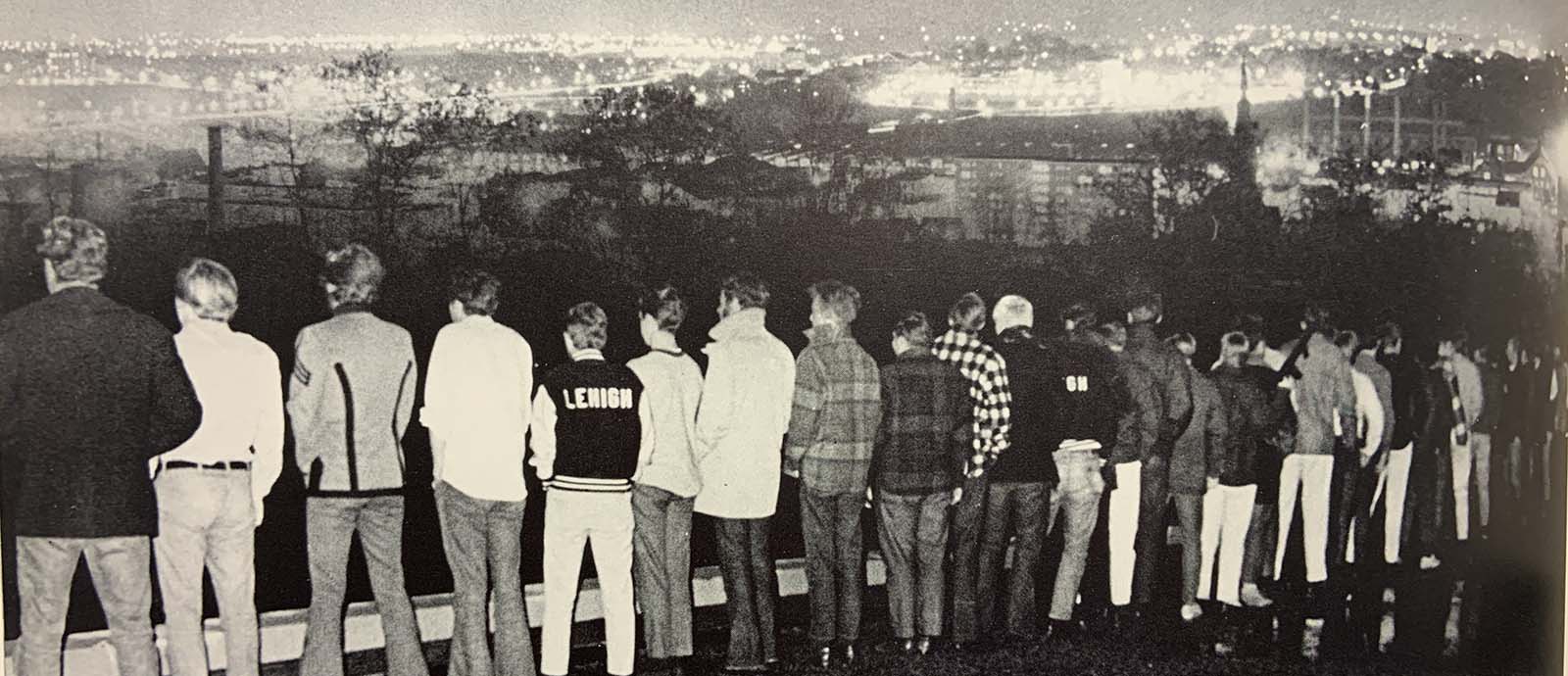
McConn history
McConn House was one of six residential buildings in the Centennial Complex, which included Congdon, Emery, Leavitt, Smiley, and Thornburg. Rathbone Dining Hall anchored them (after being constructed in 1971).
McConn was an experiment in the making. In 1965, Clarence B. Campbell, associate dean of students and director of residence life, sought to create a house that selectively accepted upperclassmen and filled in the remaining spaces.
At the end of their first year, students had four housing choices to consider: fraternities, dormitories, off-campus, or the Centennials. For those who wanted the residential campus experience, it either meant pledging, grouping friend groups into a section of dorm, or being selected for Centennial Housing.
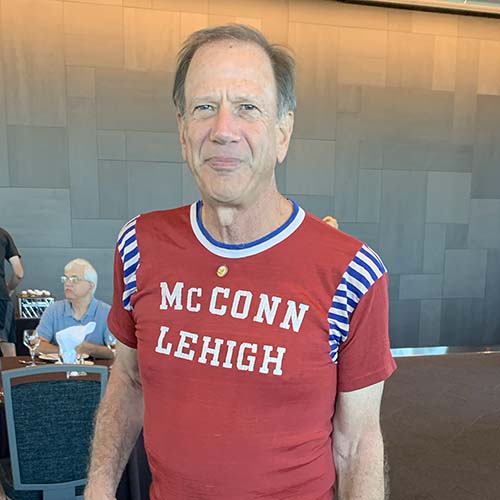 McConn was self-governing but not Greek and not rush based. It had the perks of a fraternity: game room, library, intramural participation, social budget, and party room. Campbell's goal: find a viable and attractive alternative to fraternities in order to create a sense of community for students.
McConn was self-governing but not Greek and not rush based. It had the perks of a fraternity: game room, library, intramural participation, social budget, and party room. Campbell's goal: find a viable and attractive alternative to fraternities in order to create a sense of community for students.
Some of the members of McConn rushed Greek but were not given a bid. Some weren’t interested in a hell week. For them, McConn became much more than a refuge.
“We were given a chance to shape our own destinies,” says Mike Berney ’70. “Based on what we have accomplished in life, I’d say those early lessons followed us all of our days.”
That’s what made top spots in the rankings so much sweeter. McConn members had lots to prove.
So the lore is filled with victories, both minor and major.
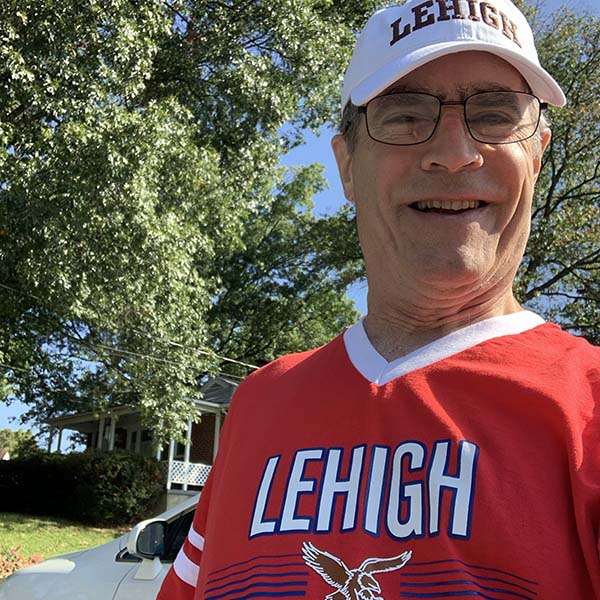 Rich Wasch ’71 ’73G wrestled every year in the intramural tournament and was pinned in the first 30 seconds, but he got one point in the rankings for participation.
Rich Wasch ’71 ’73G wrestled every year in the intramural tournament and was pinned in the first 30 seconds, but he got one point in the rankings for participation.
Dave Watson ’71 threw the game-winning 50-yard touchdown pass to Randy Hull ’73, upsetting the heavily favored Theta Xi, the football fraternity, in the football intramural championship.
The McConn guys can still hear Theta Xi fans saying, “You can’t lose to McConn.”
“We formed valuable friendships,” says Fred Schea ’72. “And had good times.”
The camaraderie and fighting spirit served them well and was soon recognized by the University as they asked McConn to host a female Czechoslovakian choir, a former New York governor, and a 1964 Presidential nominee.
“As much as we got from Lehigh, McConn gave so much back,” says Berney.
Schea, who aligns himself with the Class of 1969, left Lehigh to serve in the Navy but returned to South Mountain and McConn.
“Our collective results in our respective occupations serve to validate our experiences at Lehigh and at McConn,” says Schea.
“It prepared me for the great life I have now,” says Berney.
At a recent in-person 50th anniversary, McConn members planted the seed for creating a scholarship. Over their monthly Zoom calls, those seeds grew.
Various members from the glory years of McConn — 1966 through 1978 — contributed to the scholarship.
First scholar
In 2023, the McConn Scholarship was awarded to its inaugural recipient … who captures the spirit of McConn.
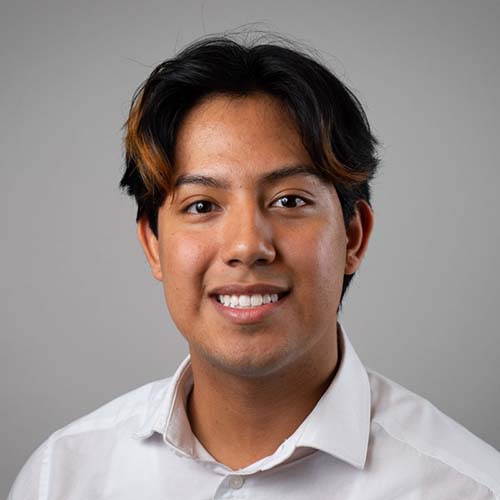 Andrey Montero ’26 came to the United States five years ago. His goal was to immerse himself in the culture and learn English. His plan was to be here a year or two and then return to his native Costa Rica.
Andrey Montero ’26 came to the United States five years ago. His goal was to immerse himself in the culture and learn English. His plan was to be here a year or two and then return to his native Costa Rica.
He lived with family in Northeast Philadelphia and went to a public school.
“I hated it,” he says. “The students did not behave, and the teachers had no authority. I had no friends, couldn’t speak English, and understood nothing.”
Needless to say, eighth grade wasn’t easy.
When he began high school, Montero was placed in an ESOL (English for Speakers of Other Languages) program.
“I wanted to start high school strong if college was in my future, but I couldn’t take honors or advanced placement classes in ESOL,” he says.
He worked hard that year, and by his sophomore year, he moved into an international baccalaureate program where he began honors classes in history, math, and science. Taking this course load was made harder by COVID-19 when classes moved online for his sophomore and junior years.
By his senior year, Montero was back in the classroom and asked by his guidance counselor to be on stage at school assemblies, serving as emcee and hosting parents, first-year students, and graduates.
“I had a great story that appealed to many people as I learned English and pushed myself to go beyond what was expected in so many ways,” he says.
He hoped to go to college and earn a degree, but at that point, Lehigh was a dream.
“I visited it and fell in love,” he says. “The campus was beautiful, and I loved seeing the green mountains — it reminded me of my home.”
When he graduated from high school, he returned to Costa Rica for the first time. It was bittersweet.
“I had achieved my goals, but I missed out on so much being away from my friends and family,” he says. “It made me wonder ‘what if,’ but I knew the sacrifices brought benefits and advancements.”
While Montero lived in the Centennial Complex as a first-year student, it wasn’t in McConn. Still, his roommate became his best friend.
“I loved my floor and building,” he says. “There were students from all over the country and world. It was a real melting pot. Those people are my friends. I go to so many events to support who they are on this campus.”
Montero embodies what the founders of the McConn Scholarship sought.
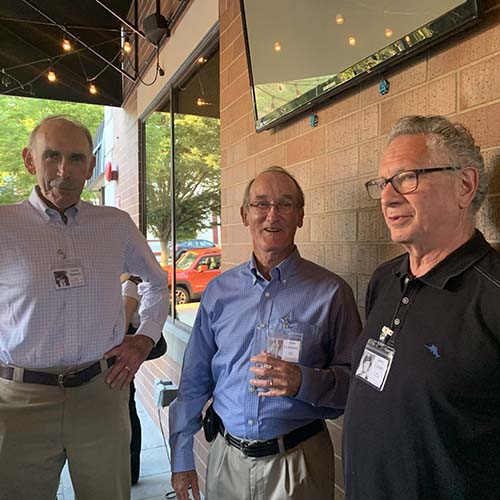 “I value education and see it as a key to success for all people,” says Schea. “Lehigh students benefit when working alongside a diverse blend of students. Back in our day, McConn helped Lehigh. The people supporting the McConn Scholarship are now helping Lehigh in a whole new way.”
“I value education and see it as a key to success for all people,” says Schea. “Lehigh students benefit when working alongside a diverse blend of students. Back in our day, McConn helped Lehigh. The people supporting the McConn Scholarship are now helping Lehigh in a whole new way.”
“The McConn experience was the main reason we have a continuing appreciation of Lehigh,” says Alan Schwartz ’70. “We are proud to have established the McConn Scholarship."
“McConn represents what is great about Lehigh,” says Berney. “It was the center of my life.”
Montero has made Lehigh a similar center, albeit blended with his own core identity. He is focused on academic excellence, finding his path in the College of Business, and creating an inclusive culture on campus
He is a member of Tumbao, the Latinx dance group, and the Latinx Student Association. He studied in the Dominican Republic during the intensive January term and interned at Life Science Cares, a nonprofit in Philadelphia that disrupts the cycle of poverty and inequity.
“The imposter syndrome I can feel only pushes me to be better,” he says. Sounds like the McConn mantra that pushed members to show the campus community how great they could be.